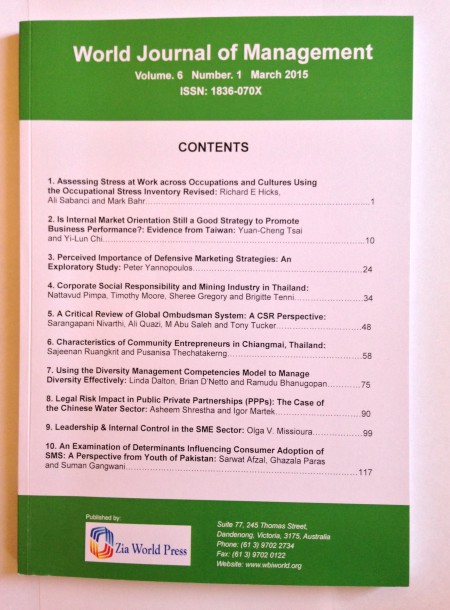Consumer Green Purchasing Intention: A Case in Energy-Saving Light Bulbs
Consumer Green Purchasing Intention: A Case in Energy-Saving Light Bulbs
Scholars in green marketing expected the market for environmentally friendly products would mature and substantially expand after the year 2000. Today, although many people express their concern about the environment, environmentally friendly products are still not the first choice for most consumers. Grounded in the Theory of Planned Behaviour, this research investigates the factors which may influence consumers’ decision when buying energy-saving light bulbs. Descriptive norm, self-identity and past behaviour were hypothesised to influence consumers’ purchasing intention and behaviour. Survey data (N=313) were collected online from New Zealand residents between late 2011 to early 2012. Structural equation modelling was employed for testing the theoretical model. Given the study context and operational definitions of the constructs, all indicators in this study are specified as reflective. Results of the analysis confirm that people with positive attitudinal affections and beliefs, identify themselves as pro-environmental, and have purchased the environmentally friendly products before, tend to have stronger intention to purchase the products. Findings also suggest that most people hold a positive purchasing intention and attitude towards the behaviour (buying energy-saving light bulbs). Practitioners may emphasise these factors when developing marketing strategies to promote similar green products. However, the cross-sectional nature of this study does not allow any causal inference. Further research is needed to examine the causal relationships, as well as the intention-behaviour link.JEL Codes: Marketing research, Green marketing, Consumer purchasing intention

